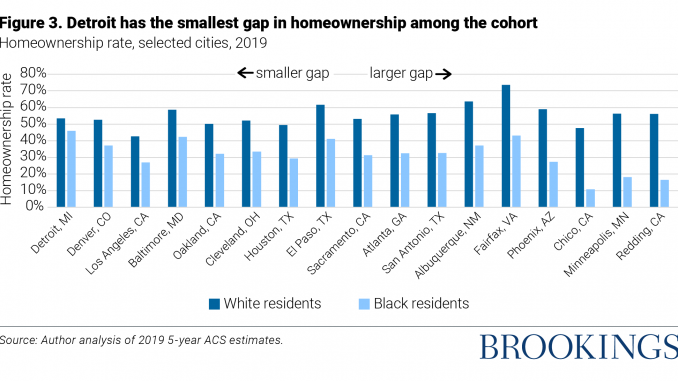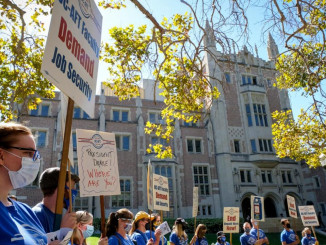
As we celebrate Black History Month and all of the struggles for equality and basic rights, it is essential that we take stock of how our society is still deeply unequal. While all working class people in this system face exploitation and hardships, we cannot lose sight of the reality that not everyone faces these burdens equally. Black people as a whole continue to be particularly disenfranchised and dispossessed in many areas, including access to quality education, health care, good-paying jobs, and many more. One extremely important aspect of the continuing racial inequality is the modern segregation of housing markets and property values.
A report by Brookings Institute released in September of last year found that between Black and white communities (and to a lesser degree between Latino and white communities), there was a racial wealth gap of $156 billion due to inequalities in home ownership. On top of the fact that the rate of Black home ownership is 46.4% compared to 75.8% for whites, the homes owned in predominantly Black neighborhoods are valued an average of $48,000 less than homes in predominately white neighborhoods. This wealth inequality is a long-term consequence of racist housing segregation and exclusion of Black people from certain job markets.
In most major cities, the racial inequalities of home ownership are quite stark. Cities that have almost comparable home ownership rates between Black and white people – such as Detroit, Denver, Los Angeles, and Baltimore – remain quite segregated to this day. This means that even if overall home ownership rates are similar, homeowners in Black neighborhoods face a massive devaluation compared to their white counterparts.
In addition, the report points out the inequalities in access to banking. It shows that Black people are less likely to have access to traditional banking services and are more likely to encounter predatory and discriminatory financial lending practices, leading to a dramatic lack of opportunity to build credit. Another study estimated that access to basic banking services could individually save them $40,000 over their lifetime due to avoiding the cycle of going into debt to pay off debt.
This economic system clearly does not work for working-class Black people, who are constantly denied the opportunities that would better allow them to live their lives with dignity and stability. In fact, this system doesn’t work for any of us in the working class, regardless of our racial background. This is not a matter of certain racial groups “getting ahead” of others at the expense of others, but rather of the tiny minority of ultra-wealthy power brokers getting ahead of all working people while encouraging and taking advantage of racial divisions within the population.
No one in the working class can truly “get ahead” in any meaningful way so long as we accept any of the divisions imposed on us, racial or otherwise. As the Brookings Institute report shows, the struggle for genuine racial equality is far from over. It will only be achieved with a total transformation of the entire capitalist political and economic system we live under. Such a transformation is long overdue.




